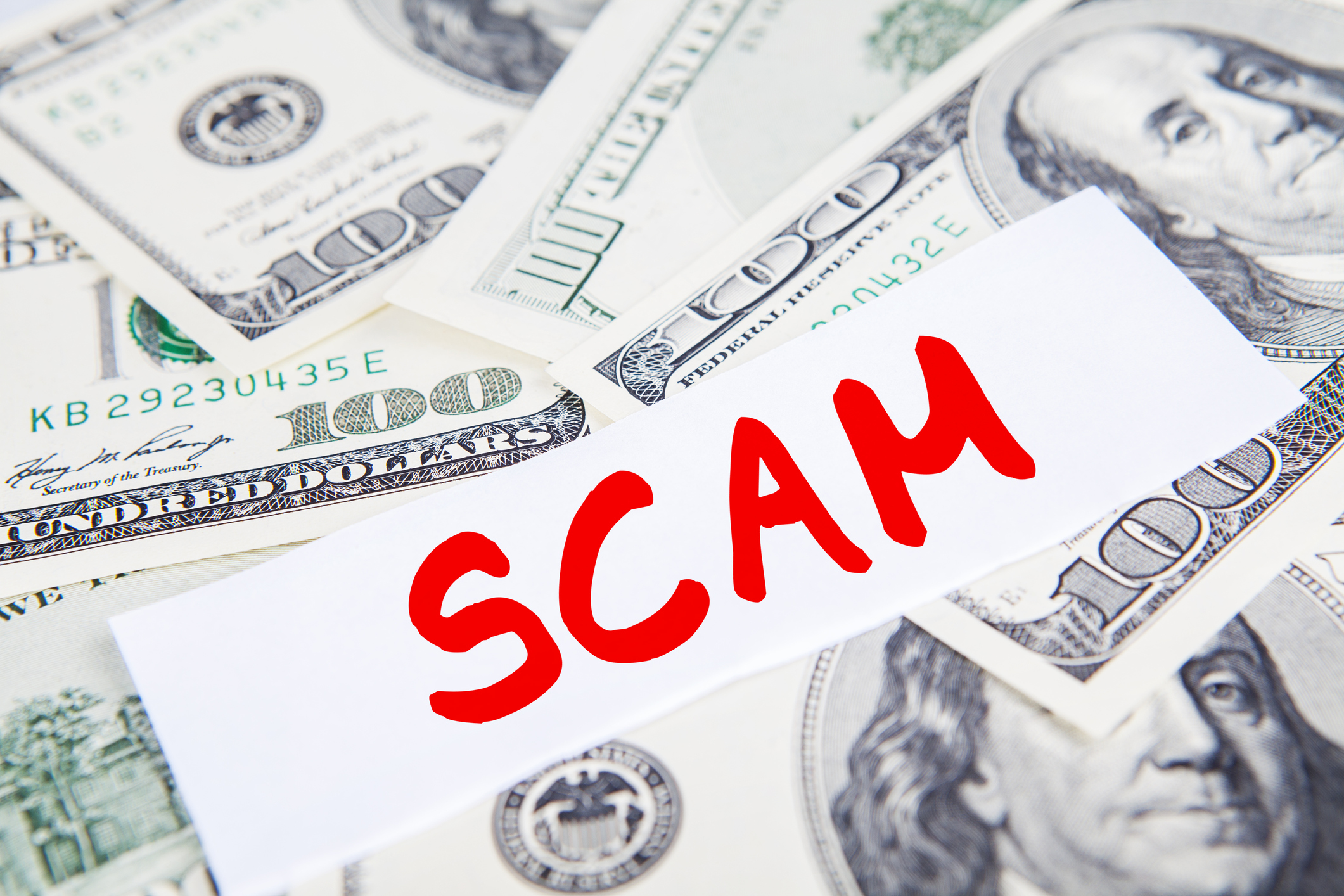Edgy already because you could not pay all you owe in federal income taxes? Well, don't let the scammers steal your cash by playing into your fears that the IRS will soon be knocking down your door.
We're hearing reports of yet another new IRS-related scam that is being reported across the country. This summer, scammers are now telling potential victims that the IRS already sent two certified letters to the tax filer in the mail. But the scammers say those letters were returned as "undelivered."
Now, the time is up. The caller, who is pretending to be from the IRS, threatens arrest if the person does not immediately put money on a prepaid debit card to pay the bill.
And in another new twist, the scammer says the prepaid card will be linked to the government's Electronic Federal Tax Payment System. Of course, that's wrong — the card will end up being controlled by the scammer who will soon run off with your money.
As with any scam, the con artist can be extremely persistent. The caller might threaten the person and warn the potential victim against contacting the person who prepared their taxes. They're told not to try to reach out to the local IRS office — or even a family member — until after a payment is made.
The threats are similar to other scams: The con artists say that if payment isn't made immediately, the local police or other law enforcement groups will show up at the door.
It's possible, of course, that some of this latest scam activity could be framed so that it takes into account some new collection procedures involving federal income taxes.
In April, the IRS announced that it was beginning to use outside bill collectors on a limited scale.
The first step involved sending letters in early spring to a few hundred taxpayers who have had overdue bills for years to alert them that their accounts will be assigned to one of four private collection agencies. Some of the early cases involve less than $50,000 owed. More letters were scheduled to follow in the next few months.
Taxpayers still will always receive their first contact from the IRS, not a debt collection agency. The IRS said it would warn consumers who would be dealing with private debt collectors first by mailing a letter to the taxpayer and including a copy of Publication 4518, What You Can Expect When the IRS Assigns Your Account to a Private Collection Agency.
Some worry that impersonators might try pretending to be from a debt collector now to scoop up any cash that could be available.
J. Russell George, the treasury inspector general for tax administration, told a congressional committee in May that the agency will closely monitor incoming impersonation complaints involving the private debt-collection program.
He said the agency would take appropriate action and warn the IRS, the debt collectors and the public if it identifies an impersonation scheme growing within the private debt-collection program.
It is not that unusual for con artists to pretend they are debt collectors. The Consumer Financial Protection Bureau warns that legitimate debt collectors, for example, would never threaten to have you arrested.
Many consumers, of course, cannot imagine how some people don't simply hang up on the IRS impersonators after endless warnings over the past four years or so. But college students, seniors and others continue to be caught off guard by the calls.
George said that more than 10,300 victims have paid more than $55 million in these IRS impersonation scams since the fall of 2013.
He noted that the IRS impersonation scam is a top priority for his agency, which is still receiving between 5,000 and 10,000 complaints each week even though several major arrests have taken place relating to crime rings involved with IRS impersonation scams.
Consumers can complain about tax-related scams at www.treasury.gov/tigta.
Scammers, of course, keep the con going by sounding as legitimate as possible.
Con artists can make it appear as though the calls are originating from Washington, D.C., or elsewhere in the U.S. when they're really operating out of a call center overseas.
The callers may know the last four digits of the victim’s Social Security number or other personal data.
Scammers want to scare consumers into paying up the money fast. Prepaid debit cards are used to facilitate a fast getaway.
"According to the victims we have interviewed, these scammers then demanded that the victims immediately pay the money using Apple iTunes gift cards, Target gift cards, prepaid debit cards, wire transfers, Western Union payments or MoneyGram payments in order to avoid being immediately arrested," George told the oversight subcommittee for the House Ways and Means Committee.
"By the time the victims realize that they have been scammed, the funds are long gone," George said.
One of the new twists seeks some sort of legitimacy when callers use a term such as Electronic Federal Tax Payment System.
The Electronic Federal Tax Payment System is a legitimate service of the U.S. Department of the Treasury. The system, begun in 1996, enables taxpayers to schedule payments in order to move money from your bank account to the federal government on a set date. But, of course, the IRS is not going to be calling anyone demanding they use the electronic payment system.
Contact Susan Tompor: stompor@freepress.com or 313-222-8876. Follow her on Twitter @Tompor.


